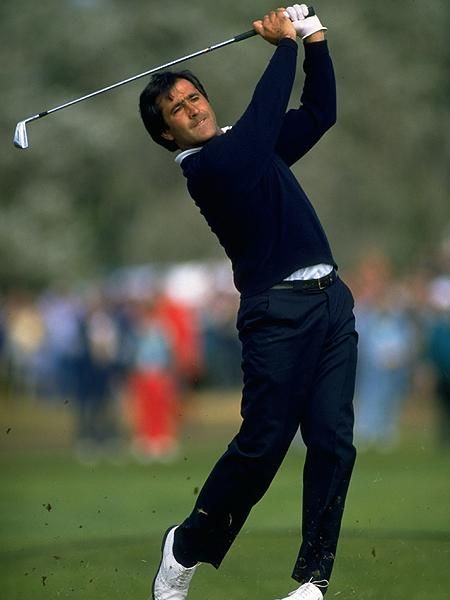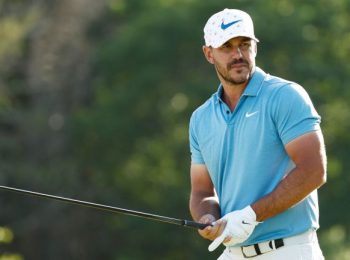Five-time major winner Seve Ballesteros has been described as “the greatest champion and a Ryder Cup pioneer” in an emotional BBC Sport podcast building up to the 150th Open Championship in July. The Spaniard, who died of brain cancer in May 2011 at the age of 54, won the Claret Jug three times and was instrumental in Europe getting involved in the biennial Ryder Cup contest against the United States and making it more of a contest. Speaking on the third of a series of Radio 5 Live podcasts, BBC commentator and former player Ken Brown said: “He was the ultimate driving force in the change of direction of the European Tour and Ryder Cup. “He was the heartbeat of those Ryder Cup weeks, he helped you with your chipping and told you where to play and wanted to hit your ball for you.” Brown played many times with Ballesteros, who turned professional in 1974 and won 90 events – including the Masters twice – describing him as “highly competitive” with a “cut-throat determination to win”. “He was glamorous, he had that smile, he engaged with the crowd,” said Brown. “He changed the way the game was played. In Europe it was a conservative game – you’d hit an iron off the tee. Suddenly here was this fellow taking on doglegs, going at flags and being able to get down in two from awkward spots. “Seve played a glamorous game and was the Arnold Palmer of our tour.” Brown played with a 22-year-old Ballesteros in the opening two rounds when the Spaniard won his first Open at Lytham St Annes in 1979. “We were playing with Lee Trevino,” Brown recalled. “And we were all going about the same after 27 holes and we got to the 10th tee and Lee said to him ‘this is when you find the men from the boys’. “The wind was into us and Seve looked at me and said ‘yeah, we’ll see the men from the boys’. We were all maybe level par, one under, and then he had this fantastic closing stretch, 15, 16, 17, 18 and shot 65, just cleaned us away – although he didn’t know where the ball was going. I mean he had no idea. “I remember him on the sixth tee trying to work one round the corner but hitting it on to the 14th fairway, about 70 yards way from where he was aiming and from there he had the perfect line in. To watch him was just fantastic.” Brown, who also speaks about conducting the final interview Ballesteros ever gave, added: “There is no doubt The Open was his favourite because links golf was the perfect mode for him to play. All his creativity came out. He loved The Open and he particularly loved St Andrews because it was the ultimate. “The further back you go, the more challenging the Old Course was. It was a bit more strategic than it is now, where it’s a bit more wham, bam. “To get his name on the trophy was the ultimate accolade and that was the best moment of his career. I’m not sure who was happier, Seve or the crowd.” Ballesteros won the second of his three Opens at St Andrews in 1984 and his celebratory jig and punch of the air delighted the fans as he set what was then a record score of 12 under for an Open victory on the Old Course. The silhouette of that iconic image was imprinted on Europe’s team kit for the 2012 Ryder Cup, the first played after his death, and the players also wore navy blue on the final day, the colour Seve always wore on the final day of tournaments. “He felt special at Ryder Cups and definitely wanted so hard to beat the Americans,” said Ballesteros’ son Javier. “The Open was the most special tournament but he felt at home at the Ryder Cup and he was proud he brought it out of the UK for the first time, to Valderrama in Spain in 1987, and won it as captain.” Javier says he still “feels the love of the people” for his dad whenever he plays golf. “People from the UK usually support UK sportspeople but it’s pretty awesome that a Spanish guy was so much loved and still is,” he said. “I saw that in 2006 when I caddied for him [at Seve’s final Open at Hoylake]. They could see he wasn’t playing his best but they still supported him. It was an incredible week.” Javier is keen to resurrect the Seve Trophy, which was contested eight times between 2000 and 2013. Named in honour of his father, the biennial contest saw players from Great Britain and Ireland take on Continental Europe in a Ryder Cup-style match. Seve captained four of the first five editions but the event struggled to attract the star players in its later years and was cancelled. However, Javier says that “European Tour headquarters are thinking about it”. He also says he has “a dream that my dad has a tournament on the European Tour. He was Spanish but it has to be in England.”
COURTESY






















